Speakers
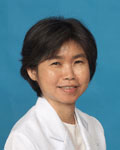
Chan Mei Leng
Principal Occupational Therapist
Tan Tock Seng Hospital
Principal Occupational Therapist with wide clinical experience of working in UK and Singapore. Publications on rheumatology, return to work after stroke, driving assessment programs, licensing policies for taxi drivers in Asia Pacific. Retirement experience of older taxi drivers in Singapore. Obtained NMRC Research Scientist grant to pursue and complete PhD studies at the University of Queensland (2008-2012).
workshop:
Overview of Driving Assessment and Rehabilitation in Singapore
This workshop provides an overview of driving assessment and rehabilitation services in Singapore. Non-driver trained OTs will gain an understanding of the components of the occupational performance in driving and the regulatory framework of driving fitness. The workshop will cover the two main driving programs in Singapore which OTs are involved in — the DARP and the Elderly Vocational Driver Assessment. Brief outlines of clinic assessment and on road driving assessment will be covered. Future trends and challenges relating to older drivers will be discussed. Various case studies will be used to illustrate the impact of common medical conditions on driving and the commonly recommended vehicle modifications. The workshop will end with a visit to Handicapped Welfare Association where participants will be able to see the vehicle modifications.
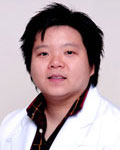
Florence Cheong
Senior Manager
Tan Tock Seng Hospital, Singapore
President
Singapore Association of Occupational Therapists
Florence graduated with a BSc (Hons) Occupational Therapy degree from St Loye’s School of Exeter in UK in 1998. She has 14 years of working experience in Tan Tock Seng Hospital in disciplines of Neurology, Neurosurgery, Geriatrics, General Medicine, Cardiovascular Medicine, Infectious Diseases, and Orthopaedics. Florence obtained postgraduate certification as a driver assessor in 2004 and currently oversees driving assessment services in the Occupational Therapy (OT) Dept. In 2006, collaborating with LTA and MOH, Florence and driving assessment team developed the taxi driver assessment for 70 yr old taxi drivers to extend their vocational licences till 73. In 2011, the team started minibus driver assessment for 70 yr old minibus drivers to extend their vocational licences by 3 years. In 2012, the driver assessment team led by Florence worked with the authorities to refine the therapy assessment for taxi drivers to extend their vocational driving licences till 75 years old. Florence is a member of the Singapore Medical Association’s Committee on Medical Guidelines on Fitness to Drive and has been involved in the review of the second edition of the guidelines. Florence is currently the Senior Manager of the OT department and holds a Masters in Health Science Management degree from the University of Sydney. Florence served as council member of the Education subcommittee in the Singapore Association of Occupational Therapists (SAOT) in 2005 and has been elected President of SAOT from 2006 till now.
workshop:
Overview of Driving Assessment and Rehabilitation in Singapore
This workshop provides an overview of driving assessment and rehabilitation services in Singapore. Non-driver trained OTs will gain an understanding of the components of the occupational performance in driving and the regulatory framework of driving fitness. The workshop will cover the two main driving programs in Singapore which OTs are involved in — the DARP and the Elderly Vocational Driver Assessment. Brief outlines of clinic assessment and on road driving assessment will be covered. Future trends and challenges relating to older drivers will be discussed. Various case studies will be used to illustrate the impact of common medical conditions on driving and the commonly recommended vehicle modifications. The workshop will end with a visit to Handicapped Welfare Association where participants will be able to see the vehicle modifications.
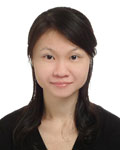
Choy Mian Yee
Occupational Therapy Coordinator
Senior Occupational Therapist
KKH Department of Child Development
Mian Yee graduated with Diploma in Occupational Therapy from Nanyang Polytechnic and subsequently completed Bachelor of Science (Occupational Therapy) from Curtin University of Technology. She has had experience working in disciplines of neurology, rehabilitation medicine, gerontology, orthopedics, mental health, cardiac rehabilitation, infectious diseases and paediatrics.
She obtained certification to carry out standardized and certified assessments including Sensory Integration and Praxis Tests as well as School Version of the Assessment of Motor and Process Skills (School AMPS). Being involved in clinic and school-based projects, including Mission I’MPossible (MIP) which is a school-based therapy service for pre-schoolers with additional needs in the classroom, she has conducted several workshops for teachers and parents. She has been active in conducting research, most of which revolves around school-based therapy services and has presented in local and overseas conferences.
Mian Yee is currently overseeing occupational therapy services at KKH Department of Child Development. She has been a member of Singapore Association of Occupational Therapists (SAOT) and served as committee member in Paediatric Special Interest Group in SAOT. She is currently pursuing Master of Education (Special Education).
Pediatric Workshop:
Overview of Paediatric OT: Integrating Clinical Practice into Educational Settings
by Choy Mian Yee, Shum Lai San, Sunita Suri
This workshop provides an overview of a school-based early intervention model of delivering Occupational Therapy services. Response to Intervention (RTI) will be explored as an underlying principle of practice for school-based Occupational Therapists. Current evidence has supported RTI’s effectiveness as an intervention approach for any student experiencing problems with the general curriculum and/or with behavioural self-management. An integrated model of practice enables a higher level of generalisation of learnt skills and increased engagement with classroom teachers and families. A collaborative model that includes Occupational Therapists, general educators, special educators, and parents looks very different than an expert model rooted in a traditional medical orientation. Paediatric OTs attending this workshop will gain an insight of the constructs of a collaborative model of practice whereby team members’ work together to solve problems by sharing information, coordinating activities and teaching strategies to address student behaviour and learning needs in the school setting. This workshop will outline some of the key processes involved and how direct intervention and specific OT techniques can be applied into a larger framework of functional outcomes in real environments, determined by team decision making and evidence.

Dr Deirdre Connolly
MSc., PG Dip. Stats., Dip. COT
Head, Discipline of Occupational Therapy,
Trinity Centre for Health Sciences,
St. James’ Hospital, Ireland
Dr Deirdre Connolly is Head of the Discipline of Occupational Therapy, Trinity College Dublin (TCD), Ireland. She graduated as an occupational therapist in 1983, in Ireland, and worked in occupational therapy practice until 1996. Her main clinical experience is in the area of acute and chronic neurological dysfunction. Since graduation, Dr Connolly has practiced in various countries including Ireland, England, Australia and Canada. Dr Connolly completed her Master’s in Science in 1996 and her PhD in 2006. She has lectured in the occupational therapy programme, TCD, since 1998. Her research interest in the area of occupational therapy practice focuses mainly on the impact of occupation-based interventions in the management of multimorbidity in primary care. She also has an active education research programme with a particular interest in the impact of problem-based learning in occupational therapy undergraduate and postgraduate education. She has published widely in both of these research areas.
KEYNOTE:
Crossing Healthcare Boundaries: Occupational Therapy in Primary Care
This presentation will focus on the role of occupational therapy in primary care practice. It will outline the development and organisation of primary care in Ireland and how primary care principles align with client-centred, occupational therapy beliefs and values. It will discuss potential occupational therapy interventions within primary care contexts and discuss methods for evaluating the impact of these interventions on occupational performance and participation.
workshop:
Client-centred Practice in Primary Care

Nancy Krolikowski
MS, OTRL, CHT
Owner, Director
Hand Therapy of Michigan
Portage, Michigan
Nancy Krolikowski is the owner and director of Hand Therapy of Michigan, an occupational therapy private practice specializing in the care of conditions affecting the upper quarter. She received her Bachelor of Science degree in Occupational Therapy from Western Michigan University in 1978 and her Master of Science degree in Occupational Therapy/Upper Extremity Management from the Medical College of Virginia in 1990. She received a certification in hand therapy in 1997. Prior to specializing, Ms. Krolikowski worked in multiple settings including inpatient acute care, rehabilitation, mental health, and home health care. She developed the Occupational Therapy Assistant program at Davenport University in Kalamazoo, Michigan and held the Program Director position from 1996-1998. She served as an associate professor at Cleveland State University and Western Michigan University. She continues to teach as a clinical supervisor for Level II occupational therapy students. Ms. Krolikowski is actively involved in legislative issues at the state and national level with her area of emphasis comprehensive documentation for the medical record.
Ms. Krolikowski was initially introduced to electronic medical records in 1993 when she was the Hand Therapy Manager for the Curtis National Hand Center in Baltimore, Maryland. Nancy has been involved in researching documentation software for hospital facilities and private practices since that time, with extensive experience using documentation software since 1995.
Lunch Talk:
International Classification of Functioning and its use in Documentation Systems
The World Health Organization’s International Classification of Functioning (ICF) is a taxonomy of human functional behavior. Its purpose is to provide a classification system that uses uniform standardized language and framework for describing health and health related states. This system can be used by all health providers involved in a person’s care. The ICF classifies functioning and disability associated with health conditions and complements systems that identify a disease or health condition.
When implemented as part of daily charting, ICF data will generate granular and multidimensional outcomes metrics of the health experience of individuals and, in the aggregate, of populations. Most importantly, ICF is a culturally neutral, universally applicable science.
This presentation will introduce the participants to ICF subject matter and how to use this material in daily charting of patient care. Emphasis will be placed on understanding the logic of ICF taxonomy and methods of using this system within the clinic.
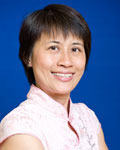
Dr Patricia Lee
MBBS (S’pore), MMED (Family Med), MCFP(S), GDGM
Consultant, Department of Geriatric Medicine
Director of the Transitional Care Programme
Changi General Hospital
Dr Patricia Lee Sueh Ying graduated from the National University of Singapore in 1993. She holds a Masters Degree in Family Medicine, a Post Graduate Diploma in Geriatric Medicine and is a Fellow with the College of Family Physicians. She is passionate about developing community services and has 16 years of experience in Community Hospitals, Nursing Homes, Chronic Sick, Palliative Care and Home Care. She is currently Director of the Transitional Care Programme at Changi General Hospital.
Plenary Session:
Transitional Care — Helping to Integrate Patient from Hospital to Home
Transitional Care is integral to supporting patients in their transition from hospital to home, especially for vulnerable patients with multiple co-morbidities who are at risk of re-attendances at emergency room and re-hospitalizations. The Eastern Health Alliance has developed their transitional care programme as part of the many efforts to provide more care integration across the continuum. Sharing some of the experiences in the set up of the programme.
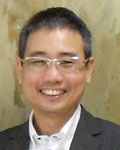
Mr Lim Hua Beng
MOccThy, BAppSc(Hons)(OT), PGDipTHEd
Senior Lecturer & Course Manager, Occupational Therapy
School of Health Sciences (Allied Health), Nanyang Polytechnic
Hua Beng is currently senior lecturer and course manager for the occupational therapy educational course at the School of Health Sciences, Nanyang Polytechnic, Singapore. He is also appointed as Project Head, Allied Health Development, Manpower Standards and Development Division, Ministry of Health.
Hua Beng was the recipient of the Asia Pacific region’s most prestigious occupational therapy award, the Tsuyoshi Sato Lectureship Award. He received and delivered the Tsuyoshi Sato Lecture at the 4th Asia Pacific Occupational Therapy Conference.
At the School of Health Sciences, he chairs the Curriculum Committee. He is a member of various government workgroups and taskforces on allied health manpower standards and development, education and rehabilitation service developments. He currently chairs the Ministry of Health’s Occupational Therapy Qualifying Examination Panel, Occupational Therapy Implementation Committee of the Allied Health Professions Act and a member of the Pro-Tem Council of the Act.
He is also actively involved in the national association, Singapore Association of Occupational Therapists (SAOT), currently serving as its 2nd alternate WFOT delegate. Through SAOT, he has actively participated in serving the regional occupational therapy community.
His interest lies in shaping fresh school leavers to serve local communities as future health professionals. His other research interests include facilitating and measuring activity participation. He recently completed a large national epidemiological study on community dwelling stroke survivors. His clinical interests have widened from hand rehabilitation to activity and social participation programmes at community levels.
Hua Beng was an occupational therapy graduate of Curtin University of Technology and has post graduate degrees from Singapore’s Nanyang Technological University, National Institute of Education and Australia’s University of Queensland.
Plenary Session:
Overview of Occupational Therapy in Singapore
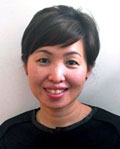
Lim Hwee Er
Director and Senior Occupational Therapist Consultant with Goshen Consultancy Services Pte Ltd
Ms Lim Hwee Er holds a Masters of Health Service Management (Univeristy of Sydney) and a Bachelor of Health Sciences (Hons) (OT) (University of Teesside, UK). As an occupational therapist, her years of clinical experience working with the elderly people of various geriatric/psychogeriatric conditions spans from hospitals to community services including nursing homes, day centers and home-based services. She also has vast experience providing consultancy services in planning and implementing specialized services and programs such as early dementia programs and hostel. As an ACTA certified trainer, she is involved in development and implementation of WSQ certified and regular training and workshops for professionals, family caregivers and the public in collaboration with various organizations such as Tsao Foundation, HPB and SSTI on issues related to eldercare and well elderly programs. Motivated and passionate about changing the culture of care for the seniors in healthcare and community care settings, Hwee Er is sitting on various committees including Alzheimer’s Disease Association Steering Committee for Person Centered Care, The Adult Protection Team (MCYS) and Dementia Taskforce and National Dementia Network Dementia Homecare Subgroup to pursue this cause. Hwee Er is currently in private practice with Goshen Rehabilitation & Consultancy Services.
Workshop:
Demystifying Dementia Through Occupational Therapy
Dementia is a neurodegenerative, progressively deteriorating and terminal clinical syndrome characterized by a loss or decline in memory and other cognitive abilities. Associated with the disease are often unique challenges such as the extent to which new learning is possible and ways to effectively contend with dementia-related behaviors that threaten the well-being of both the people with dementia and their caregivers. The fundamental approach of occupational therapy to promote well-being through meaningful engagement taps on occupational therapists’ innate understanding of the relationship between occupation, well-being and the person with dementia. This workshop will discuss the role, skills and contribution of the Occupational Therapist in a dementia care setting:
- OT and person-center care philosophy
- Unique OT skills critical in dementia care
- Define OT roles and contributions in dementia care
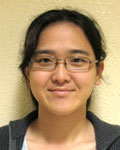
Shum Lai San
Senior Occupational Therapist
KKH Department of Child Development
MS Shum Lai San is currently a Senior Occupational Therapist at the Department of Child Development, KK Women’s and Children’s Hospital (KKH). Ms Shum has a Bachelor of Occupational Therapy from the Curtin University of Technology, Western Australia.
Ms Shum has 6 years of experience working with children with special needs, including Autism, ADHD, and children with learning disabilities. She had experienced working in a special school and was part of the Mission I’mPossible (MIP) project, where she provided interventions for children in the mainstream preschool and consultation for the teachers, parents and learning support educators.
Ms Shum also runs workshops for parents and teachers such as Signpost (behavior management workshops for parents), Handwriting workshop, Behaviour management and self regulation workshop and Social Skills workshop. Currently she is a member of the consultant team for the Development Support Programme (DSP).
Pediatric Workshop:
Overview of Paediatric OT: Integrating Clinical Practice into Educational Settings
by Choy Mian Yee, Shum Lai San, Sunita Suri
This workshop provides an overview of a school-based early intervention model of delivering Occupational Therapy services. Response to Intervention (RTI) will be explored as an underlying principle of practice for school-based Occupational Therapists. Current evidence has supported RTI’s effectiveness as an intervention approach for any student experiencing problems with the general curriculum and/or with behavioural self-management. An integrated model of practice enables a higher level of generalisation of learnt skills and increased engagement with classroom teachers and families. A collaborative model that includes Occupational Therapists, general educators, special educators, and parents looks very different than an expert model rooted in a traditional medical orientation. Paediatric OTs attending this workshop will gain an insight of the constructs of a collaborative model of practice whereby team members’ work together to solve problems by sharing information, coordinating activities and teaching strategies to address student behaviour and learning needs in the school setting. This workshop will outline some of the key processes involved and how direct intervention and specific OT techniques can be applied into a larger framework of functional outcomes in real environments, determined by team decision making and evidence.
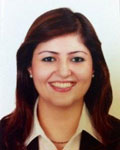
Sunita Suri
Paediatric Team Leaderd
Senior Occupational Therapistd
Society for the Physically Disabled
Sunita Suri is a Senior Occupational Therapist at Society for the Physically Disabled leading the Peadiatric Outreach programme which aims to integrate families and educators priorities with the identified development needs of the child. Ms Suri has worked with infants through young adults in a variety of settings including Special School, Early Intervention programme and currently in a Community Outreach school-based intervention for developmentally at risk children.
Ms Suri also conducts on-going formal training sessions for early childhood educators from national pre-schools in collaboration with MCYS Childcare Division. Ms Suri has had a myriad of experience treating children with a variety of diagnoses and working as part of a multi-disciplinary team developing comprehensive intervention planning for children and their families.
Ms Suri has kept abreast and actively engaged in the local Occupational Therapy community undertakings. She has consistently been a member of Singapore Association of Occupational Therapist (SAOT) has served as Council member the previous term. She is also a part of the National Occupational Therapy Conference (NOTC) 2012 organising committee.
Pediatric Workshop:
Overview of Paediatric OT: Integrating Clinical Practice into Educational Settings
by Choy Mian Yee, Shum Lai San, Sunita Suri
This workshop provides an overview of a school-based early intervention model of delivering Occupational Therapy services. Response to Intervention (RTI) will be explored as an underlying principle of practice for school-based Occupational Therapists. Current evidence has supported RTI’s effectiveness as an intervention approach for any student experiencing problems with the general curriculum and/or with behavioural self-management. An integrated model of practice enables a higher level of generalisation of learnt skills and increased engagement with classroom teachers and families. A collaborative model that includes Occupational Therapists, general educators, special educators, and parents looks very different than an expert model rooted in a traditional medical orientation. Paediatric OTs attending this workshop will gain an insight of the constructs of a collaborative model of practice whereby team members’ work together to solve problems by sharing information, coordinating activities and teaching strategies to address student behaviour and learning needs in the school setting. This workshop will outline some of the key processes involved and how direct intervention and specific OT techniques can be applied into a larger framework of functional outcomes in real environments, determined by team decision making and evidence.
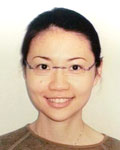
Tan Lee Ling
Senior Occupational Therapist
St Luke’s Hospital
Lee Ling is a Senior Occupational Therapist working in St. Luke’s Hospital (SLH). She’s certified in Neuro-Developmental Treatment (Basic and Advance NDT), Constraint Induced Movement Therapy and had completed her Certificate in Clinical Rehabilitation from Flinders University in 2011.
Lee Ling has 12 years of experience in examination and providing therapeutic interventions to the elderly. She has been actively assisting the Rehabilitation Division to deliver quality services to the clients and had participated in a variety of studies to improve patient’s functional abilities after stroke including the applications of Constraint Induced Movement Therapy (CIMT), Neuro Hand Orthosis Program (NHOP), Puppetry Robotic Clove System (PRoGS), Stroke Innovative Program (SIP) and Enhanced CIMT Program (eCIMT) which include the use of a Stroke Arm Monitor (SAM) system to encourage patient’s daily self practice.
Workshop:
Stroke Rehabilitation (Part II):
Constraint Induced Movement Therapy for Improving Upper Extremity Function Following Stroke
CI therapy focuses on upper extremities rehabilitation for adults with chronic stroke with mild to moderate impairment. CI therapy successfully transfers improvements in the quality and amount of arm use from the clinic to the life setting for persons with chronic stroke. The current consensus in the rehabilitation field, including the perspectives of participants, researchers, clinicians, and health care payers, is that functional activity in the life situation is the most important outcome to pursue and measure. Physical rehabilitation outcome evaluation instruments, however, do not provide a direct measure of motor function of the affected extremity in the real world.
CI therapy research has employed two distinct training procedures, shaping and task practice, to promote functional task activity practice by participants. The primary objective of shaping is to get the patient to use the more-affected upper extremities repeatedly in a concentrated, massed-practice fashion to overcome learned nonuse and induce use-dependent cortical reorganization. The purpose of task practice activities is to promote increased use of the more-affected upper extremity during functional activities.
This workshop will cover the following:
- Inclusion Criterions
- For Grade 1 to Grade 5 - Outcome Measures
- The Motor Activity Log (MAL)
- Action Research Arm Test (ARAT) - Training Procedures
- Shaping
- Task Practice
- Behavioral Contract
- Home Practice
- Home Skill Assignment
- Home Diary
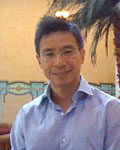
Dr Wong Loong Mun
Chief Care Integration Officer
Care Integration Division
Agency for Integrated Care Pte Ltd
Dr Wong Loong Mun holds a doctorate in social psychology. He is currently in charge of the Care Integration Division of the Agency for Integrated Care. Under his portfolio, he oversees the referral management and coordination of long term care services, advanced care planning, transitional care, case management and development of new clinical programmes and projects in the long term care sector for the elderly. He has been in this field for 10 years, having set up this new national referral management programme in 2001, previously known as Integrated Care Services (ICS).
In 2008, Dr Wong implemented the Aged Care Transition Teams (ACTION) across the 6 public general hospitals in Singapore, to reduce length of stay and manage the readmission rate of these patients. Thus far, the ACTION teams have supported some 15,000 patients.
Dr Wong also has experience leading the development and implementation of various Chronic Disease Management programmes, with the National Healthcare Group. Dr Wong has lectured at various overseas conferences and local establishments like the Primary Care Academy, NHG, the Health Promotion Board and the Singapore General Hospital.
Dr Wong started his career in the elderly healthcare sector, with Tsao Foundation as a community gerontological case manager. In his 2 years of service, he worked with various providers, including the hospitals and polyclinics to help manage the frail elderly to age in their own homes without premature institutionalisation. The work in Tsao Foundation formed the basis and foundation of his current work.
Plenary Session:
Changing Healthcare Landscape in Singapore
Globally, healthcare systems have been largely centered on acute care characterized by episodic, high-level care with sophisticated medical sub-specialization. There is now consensus that there should be more focus to care outside of the acute setting to deal with the challenges of an ageing population and increase in chronic disease prevalence. The vision for healthcare delivery in Singapore is to develop integrated Regional Healthcare Systems, which are essentially patient-centric healthcare ecosystems comprising of partners from the primary, acute and step down care sectors working together to deliver integrated healthcare services to improve patient outcomes.
In this presentation, the attempt is to present a slice of these evolving ecosystems as it pertains to community care. Much has been discussed the urgency to integrate care seamlessly across the levels of healthcare. However, when it comes to caring for an elderly, a client and/or a patient in the community, there is a need to mend the seams across the fabrics of health and social. Without the proper knits, many fall off the gaps of in-between. Using the examples of Transitional Convalescent Care, Enhanced Eldercare Program, Singapore Programme for Integrated Care for the Elderly and Integrated Day Facility, this presentation discusses how attempts are being made to move beyond the current models to embrace care that truly serve the needs of the old, sick, poor and/or frail.

Tim Xu Tianma
Manager (Operations) / Principal Occupational Therapist
THK Therapy Services
Mr. Tim Xu Tianma graduated from Nanyang Polytechnic in 2000. He is a certified NDT (basic and advance NDT for adult hemiplegia) and Constraint Induced Movement Therapy practitioner, and holds the Master of Occupational Therapy from La Trobe University, Australia. With more than 12 years of experience in community geriatric and stroke rehabilitation, Tim has been highly committed to his clinical works with his passion in clinical research and training. Besides clinical works, he worked as external lecturer at Temasek Polytechnic from 2009 to 2011 and is currently appointed OT trainer at Agency of Integrated Care. He is also a certified industrial trainer from the Singapore Institute of Technical Education (ITE). Being a council member and Education & Research Committee chairperson in Singapore Association of Occupational Therapists since 2010, Tim has been a strong advocate for the Occupational Therapy Profession. Currently, he is the community rehabilitation workgroup member in MOH to develop the evidence based rehabilitation guidelines for people with strokes in the community. He is currently working as Manager (Operations), Principal Occupational Therapist in THK Therapy Services, Thye Hua Kwan Moral Charities, Singapore.
Workshop:
Stroke Rehabilitation (Part I):
Introduction to Neuro-Developmental Treatment
Stroke is one of the leading courses of death and major disabilities in later life. There is strong evidence that greater intensity of rehabilitation therapy results in modest improvements in functional outcome. Appropriate treatment interventions are essential to help stroke survivors regain their functions and abilities in self care.
The Neuro-Developmental Treatment (NDT) Approach is widely used for management and treatment of individuals with stroke. It is a hands-on and problem solving approach that aims to identify the individual’s strengths and impairments, and thereafter, client-centred treatment interventions are developed to optimize function.
The NDT workshop will cover the following:
- Basic NDT: from theory to practice
- NDTA Enablement Model
- 3 areas of function
- Movement analysis and guidelines for assessment
- Facilitation techniques
- Tips for home-based activities
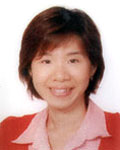
Doreen Yeo
M Hlth Sc (OccThy), Dip OT (Merit)
Allied Health Manager,
Tan Tock Seng Hospital Rehabilitation Centre
Doreen graduated with a Diploma in Occupational Therapy (Merit) from Nanyang Polytechnic in 2001. She worked in the National University Hospital for 3 years before joining Tan Tock Seng Hospital Rehabilitation Centre in 2004. She went on to complete a Master of Health Science (Occupational Therapy) from University of Sydney in 2006. She obtained a postgraduate certification as a driver assessor in 2007. Doreen had worked as an occupational therapist since 2001 in the disciplines of neurology, neurosurgery, orthopaedics. Her clinical interest is in driving assessment and rehabilitation and vocational rehabilitation.
In 2009, she became the Allied Health Manager of Tan Tock Seng Hospital Rehabilitation Centre and has been overseeing the Allied Health Services at the Centre. Doreen is a member of the Singapore Medical Association’s Committee on Medical Guidelines on Fitness to Drive and has been involved in the review of the second edition of the guidelines. She is one of the members in the driving workgroup in Tan Tock Seng Hospital. Doreen is also the Vice President of the Singapore Association of Occupational Therapists and is a delegate of the World Federation of Occupational Therapists.
Workshop:
Overview of Driving Assessment and Rehabilitation in Singapore
This workshop provides an overview of driving assessment and rehabilitation services in Singapore. Non-driver trained OTs will gain an understanding of the components of the occupational performance in driving and the regulatory framework of driving fitness. The workshop will cover the two main driving programs in Singapore which OTs are involved in – the DARP and the Elderly Vocational Driver Assessment. Brief outlines of clinic assessment and on road driving assessment will be covered. Future trends and challenges relating to older drivers will be discussed. Various case studies will be used to illustrate the impact of common medical conditions on driving and the commonly recommended vehicle modifications. The workshop will end with a visit to Handicapped Welfare Association where participants will be able to see the vehicle modifications.



